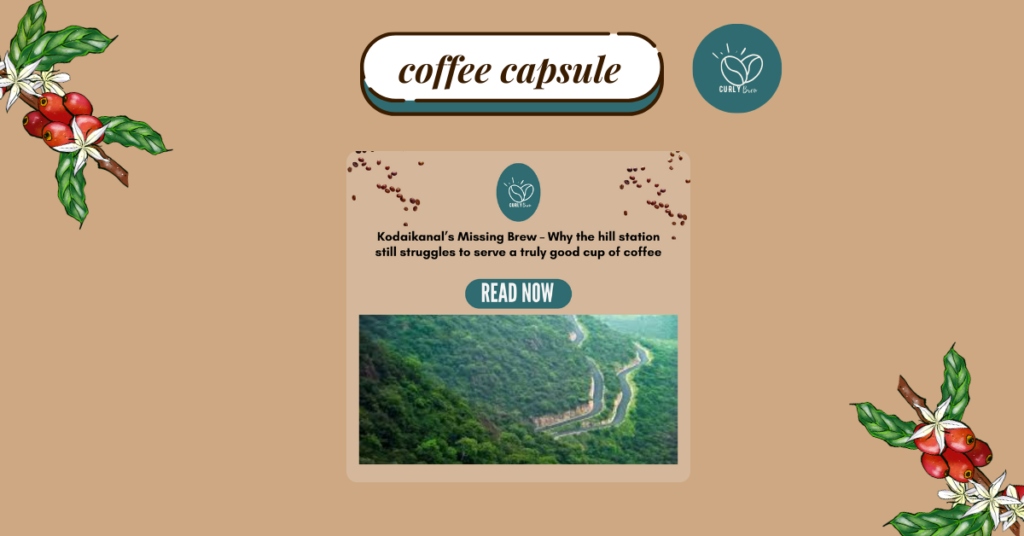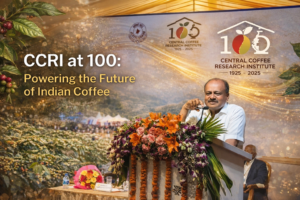
I recently visited Kodaikanal, the “Princess of Hill Stations,” hoping to find cafés serving memorable cups of coffee. To my surprise, the town that sits amidst coffee-growing hills still struggles to celebrate its own brew. While filter coffee was available in a few spots, specialty coffee was nearly invisible, and instant coffee dominated menus — hardly something that excites a true coffee lover’s palate.
Instant Gratification vs. Specialty Appreciation
Most cafés in Kodaikanal lean on quick solutions: instant coffee or overly sweet filter coffee. While these satisfy casual cravings, they don’t do justice to the richness of beans grown in the Western Ghats.
“Coffee is not just a drink, it’s a journey — from the bean to the brew.”
Specialty coffee focuses on bean origin, processing methods, roasting, and mindful brewing. Yet in Kodaikanal, despite being surrounded by Arabica farms, cafés rarely highlight these beans. Instead, generic mixes and sugar-heavy brews dominate the scene.
The Untapped Potential of Local Coffee
Kodaikanal sits in one of South India’s most promising coffee-growing regions. Its altitude, microclimate, and shade-grown farms create ideal conditions for Arabica. But much of this coffee leaves the hills, roasted and appreciated elsewhere, while the locals and tourists miss out.
Imagine enjoying a pour-over made with beans grown just a few miles away, paired with the story of the farmer who nurtured them. That’s the authentic coffee experience Kodaikanal is still missing.
“Behind every cup of coffee is a hand, a heart, and a hope.”
The Café Culture Conundrum
Cafés in Kodaikanal are charming — cozy setups, lake views, mist-filled corners. But too often, the coffee is an afterthought. It’s ironic: travelers sit in the heart of coffee country, yet rarely taste coffee that reflects the land.
A good cup doesn’t demand fancy machines or intimidating jargon. It’s about freshness, sourcing beans ethically, and brewing with care. That’s what both locals and tourists deserve.
What Needs to Change?
- Local Bean Representation – Cafés should highlight Arabica grown in nearby farms instead of defaulting to instant powders.
- Educating Palates – Host workshops, coffee cuppings, and storytelling sessions to help tourists and locals appreciate coffee beyond sweetness and froth.
- Farm-to-Cup Experiences – Collaboration between cafés and farmers could turn Kodaikanal into a destination for authentic coffee journeys.
- Barista Training – Local youth can be trained in brewing methods, latte art, and customer education. This would create employment and raise coffee quality standards.
- Bean-to-Cup Sessions – Offering guided sessions where visitors see how beans are roasted, ground, and brewed will add depth to the tourist experience.
- Government Support – Policies and tourism boards can promote coffee trails, incentivize cafés to source local beans, and provide training support for coffee professionals.
Brewing the Future
Kodaikanal has fertile soil, skilled farmers, and curious travelers — the perfect blend to grow a specialty coffee identity. What’s missing is awareness and intention. If the town embraces its own beans and brewing culture, it can serve coffee experiences as rich as its landscapes.
“Tourists come for the mist, but they should stay for the coffee.”
Until then, Kodaikanal remains a place where the coffee potential lingers untapped — waiting for cafés, farmers, and even government bodies to invest in a future where every cup tells the story of the hills.





